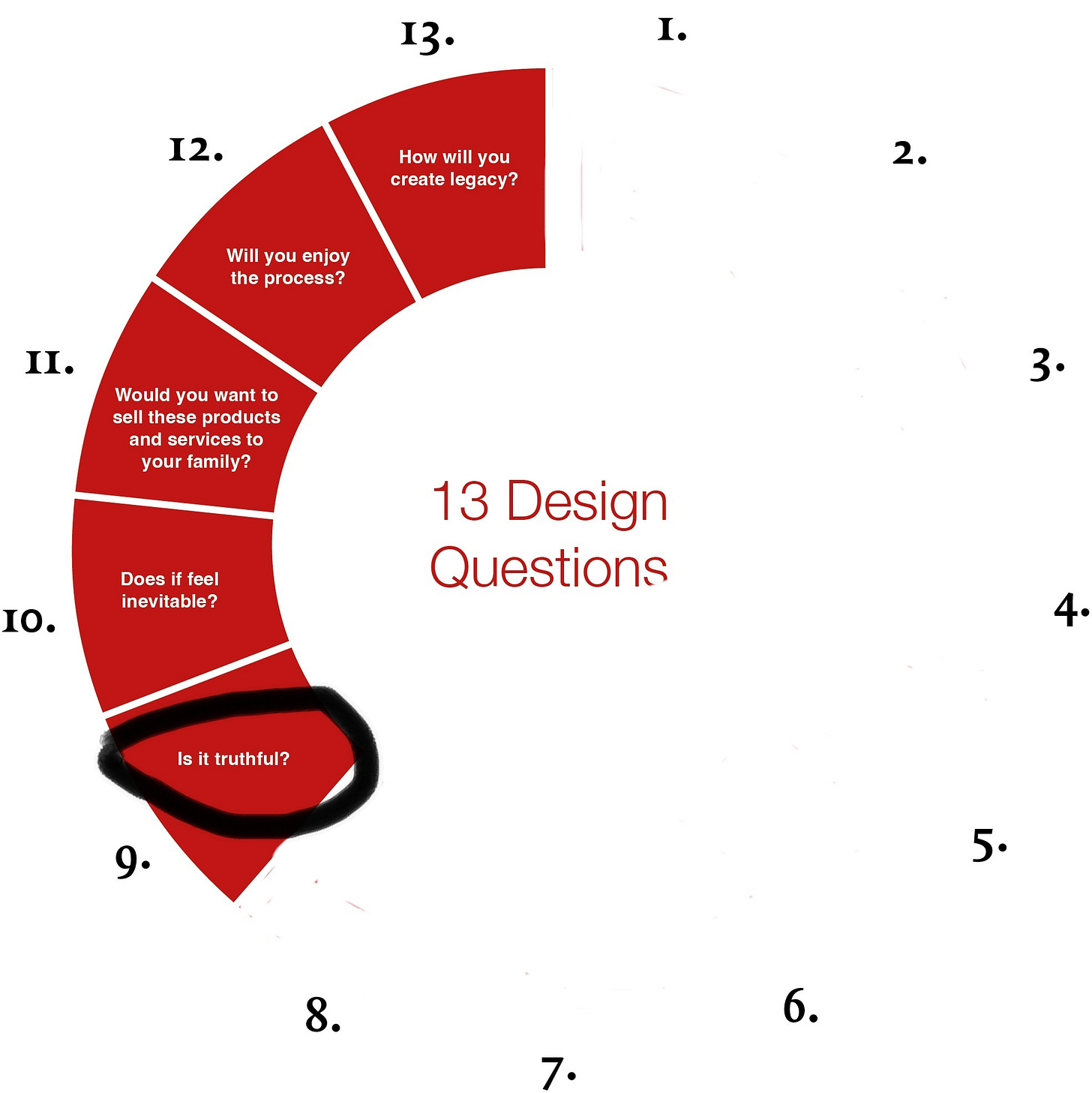New Artisans - is it truthful?
Day 9 of Alan Moore's 13 Design Questions
These questions don’t get any easier…
Every day we find ourselves working in a landscape defined by objective facts - most of which are temporary, as we learn more and replace them, subjective truths, which are even more volatile as our cultures and beliefs bend them to suit their needs, and of course, those inconvenient truths, from climate change to the failures of Western capitalism, which rudely interrupt our comfortable lives.
I think as Artisans, the facts we hold to are the whetstone of our craft. We sharpen our ideas against them, knowing that the more we do so, the more we change the shape of the stone. Most of what we hold to be true today is being tested by scientific disciplines of thought and will look different to our grandchildren, who will puzzle over our stupidity in the same way we regard those times when we believed the sun moved around the earth, or that disease was caused by “bad air” (although those errors will, I suspect look benign against our practical contempt for the causes of climate change). Evolution, after all, is defined by adapting to failure, rather than being “right”.
As artisans, I think we have to be prepared to be judged by the subjective truths we hold dear. What are they based on? How do we test them? What are their implications? Are they generous or selfish? What are the dreams of the future they contain?
“Kill your darlings, kill your darlings, even when it breaks your egocentric little scribbler’s heart, kill your darlings.”
―Stephen King, On Writing: A Memoir of the Craft
Are we prepared to “kill our darlings” as the work we do exposes their flaws and ends their usefulness, or will we be so invested in them that we protect them?
Believing we are unequivocally right is a supreme arrogance that only ever leads to purposeless conflict.
Committing to doing the work to find the flaws in what we do before they find us, is the work of the artisan.
“This above all: to thine own self be true,
And it must follow, as the night the day,
Thou canst not then be false to any man.”
― William Shakespeare, Hamlet


